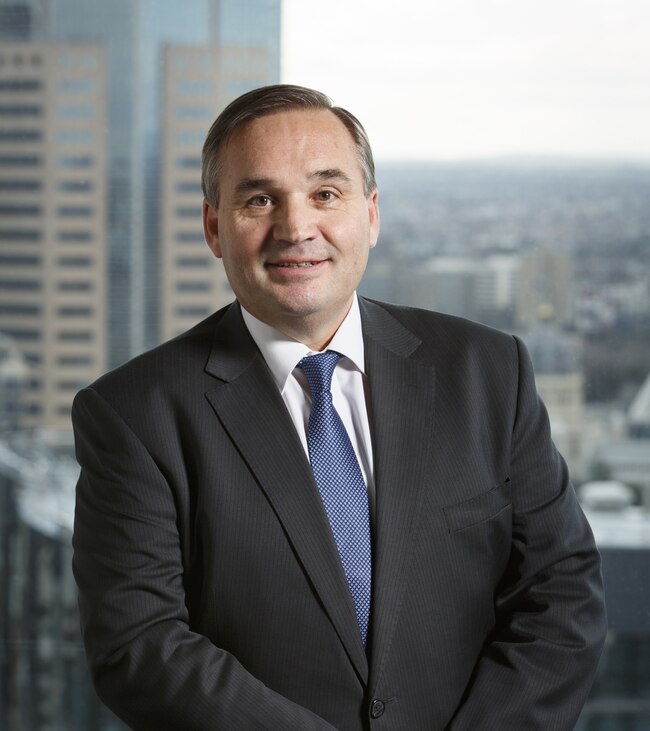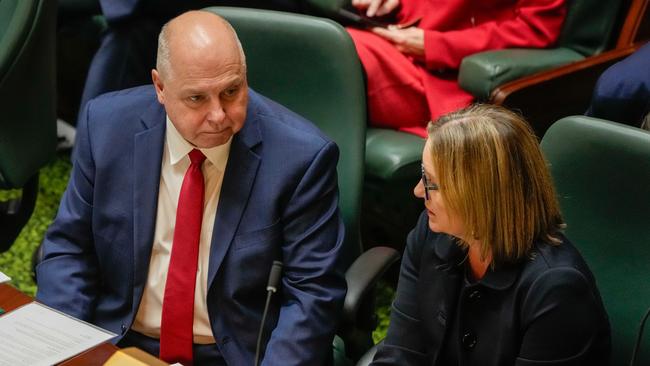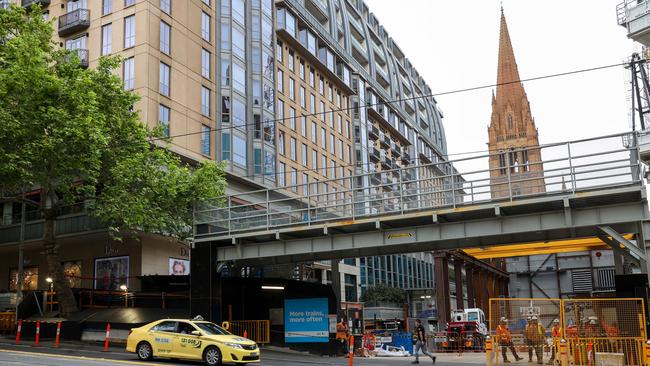The cost of the Victorian Labor government’s ‘reactive’ approach to the state’s finances
The state’s financial watchdog has criticised the Allan government’s ‘short-term, reactive’ financial strategies, as debt balloons.
Victoria’s financial watchdog has warned the Allan Labor government its financial strategies are too “reactive” and lack long-term vision, as the state’s gross debt is forecast to balloon to $268.4bn by 2028.
The general government sector reported a net operating loss of $4.2bn this year, bringing the total losses over the last five years to $48bn, according to the Auditor-General’s 2023-34 annual financial report.
State Auditor-General Andrew Greaves found that as GGS gross debt is projected to grow to $228.2bn by June 30, 2028, the state’s gross debt will also jump from $195.7bn in 2024 to $268.4bn by June 30, 2028.
Victoria’s debt has been growing faster than any other state, with the growth in debt in part used to fund the state’s operating deficit in response to the pandemic and infrastructure projects.
The report, tabled in parliament on Friday, was critical of the government’s financial strategies, and said it had not “articulated a clear plan for long-term fiscal management”.
Assistant Treasurer Danny Pearson said he liked Mr Greaves personally but did not agree with his report.
“Current strategies are short-term, reactive, and do not address both the existing financial challenges and emerging financial risks,” the Auditor-General’s review said.
“Developing a well-defined, long-term plan will provide a clear framework for which government decision-making can be anchored to ensure the allocation of public resources are prioritised not only based on policy intent but align with the financial and economic strategies and constraints to maintain financial health.”

The government has attributed about $31.5bn of the cumulative $48bn operating losses to its Covid-19 response and $16.5bn to providing ongoing public services.
The GGS is also forecast to record a net operating loss of $2.2bn in 2024-25 before expecting to return to a net operating surplus from 2025-26, meaning the cumulative operating losses over the six years to 2024-25 will amount to $50.1bn, of which $18.6bn of losses will be owed to public services.
“The operating surpluses forecast from 2025-26 to 2027-28 in the 2024-25 state budget only allow for recovery of $5.1bn of the accumulated losses by 2027-28,” the report said.
“The government will need to make significant surpluses beyond current budgetary forecasts to restore the financial resilience eroded by these losses.”
The report said Victoria’s debt is “historically high” and will only grow as Labor continues to borrow to fund its “significant planned infrastructure program”, which has been plagued by cost blowouts.
Mr Greaves noted that the estimated expenditure, completion date and total estimated investment for the Suburban Rail Loop, a key project in Victoria’s Big Build, had not been disclosed.
“Using debt to fund investment in intergenerational infrastructure is common … However, a higher and unsustainable level of public debt can pose a significant risk to future prosperity and economic stability,” his report said.

“If not managed in a fiscally sustainable and responsible manner, debt imposes a direct cost on taxpayers both now and in the future.”
While the GGS achieved an operating cash surplus of $2.6bn, it also racked up a fiscal cash deficit of $14.4bn in 2023-24, and has not made a fiscal cash surplus for the past eight years.
“This prolonged period of fiscal cash deficits demonstrates why the state has relied so heavily on borrowings to fund capital needs, which is a challenge to its financial sustainability,” the report said.
The rise in operating revenue was largely driven by a taxation income from the Covid debt levy applied on payroll and land tax holdings, as well as stronger economic conditions in property and labour markets.

The report also acknowledged employees as the GGS’s largest single operating expense, workers having been paid $36bn in 2023-24.
“Managing employee expense growth at forecast levels will be a challenge, particularly in a period of enterprise bargaining where several sector-based enterprise bargaining agreements (for example, for police, teachers, paramedics and nurses) either have been or are due for renegotiation in coming years at higher rates.”
Asked if he was concerned about the contents of the report, Mr Pearson said: “I like Andrew personally, but I don’t agree with the report.”
“We’ve got a really strong, vibrant economy here in Victoria. We’re investing heavily in the services that Victorians rely upon and in infrastructure they have overwhelmingly voted for, and we’re not taking a backwards step,” he said.
“We’ve been really clear with the Victorian community that we’ve got a fiscal strategy in place. A strategy that is front and centre of each budget that’s been handed down, that I’ve been involved in, that’s been signed off by the Auditor-General.
“Let’s be clear about this, 2020 was a terrifying time for many in our community. We made a deliberate decision, we were not going to be courting surpluses or credit ratings, we were focused on stabilising the economy.”
Opposition Leader John Pesutto described the report as “scathing”.
“What it says is there are serious financial risks to Victoria from the massive debt and also massive ongoing deficits that Labor is addicted to,” Mr Pesutto said.
“The report tells us … things are worse than we’ve been told they are.”




To join the conversation, please log in. Don't have an account? Register
Join the conversation, you are commenting as Logout